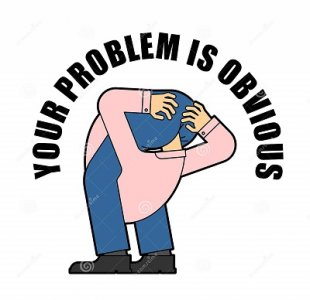The argument is not only factually correct, there's no fallacy attached.
Example: A person writes a thesis... the title and opening statement could present the question: "Does smoking have a negative health impact?"
The body of the thesis would be describing the legwork of the investigation, and the collection and processing of data. Then, the author could declare in closing: "Smoking has a negative health impact".
It does look like a poor example I used on the website I quoted in the OP, (I think it mentioned politics so I didn't post it, and "unfortunately, or fortunately I cant find it again now"!).
Here is a better website in any case:
https://www.grammarly.com/blog/circular-argument-fallacy/#:~:text=A circular argument, also known,for the claim are true.
Quote:
" What is a circular argument in writing?
To illustrate what we meant by “you can’t define something by using it as the definition”, here are a few examples of a circular argument:
- Ryan makes delicious burgers because he’s an excellent cook.
- You have to drive under the speed limit because it’s illegal to drive faster than the speed limit.
- This offer can’t be a pyramid scheme because pyramid schemes are illegal.
A circular argument, also known as circular reasoning, is considered a logical fallacy because when you make this type of argument, you are not supporting your claim with logic. Instead, you’re using your claim to “prove” that the reasons for the claim are true.
To go back to our first example, imagine Ryan’s brother says that Ryan makes delicious burgers. You ask what makes the burgers so delicious, and he tells you it’s because Ryan is an excellent cook. That might be true, but logically, it doesn’t support the claim. A logical way to support this claim might be to explain that Ryan developed a unique spice blend for burgers, or that he uses high-quality ingredients.
A circular argument adheres to the formula “X is true because of Y, and Y is true because of X,” which is a circular formula.
Types of circular arguments
Circular reasoning can appear in just about any type of communication. You might run into it in literature, social media comments, speeches, or everyday conversation. People use circular arguments for a variety of reasons. Sometimes, it’s because they genuinely believe they’re making a logical statement. In other cases, it’s to acknowledge a paradox or critique a situation that forces people to make illogical choices.
It’s not uncommon to come across circular reasoning in political rhetoric. Often, this is in relation to the lawfulness or unlawfulness of a specific policy.
Another common circular argument you might encounter in political speech is the assertion that elected officials should be respected because they’re elected officials.
Paradox
Circular arguments are also made as a way to ponder pardoxes. Perhaps the most famous paradox is this: “Which came first, the chicken or the egg?”
A paradox is a statement that seems to contradict itself, but in fact, it is logically sound. Often, they’re meant to be thought-provoking. Here are a few examples:
- You can save money by spending money.
- You don’t know what you don’t know.
- It’s the beginning of the end.
A circular argument formatted as a paradox might look like this:
- Nobody’s read that book because it’s always checked out of the library.
- “Nobody goes there anymore. It’s too crowded.” —Yogi Berra
 ).
).

